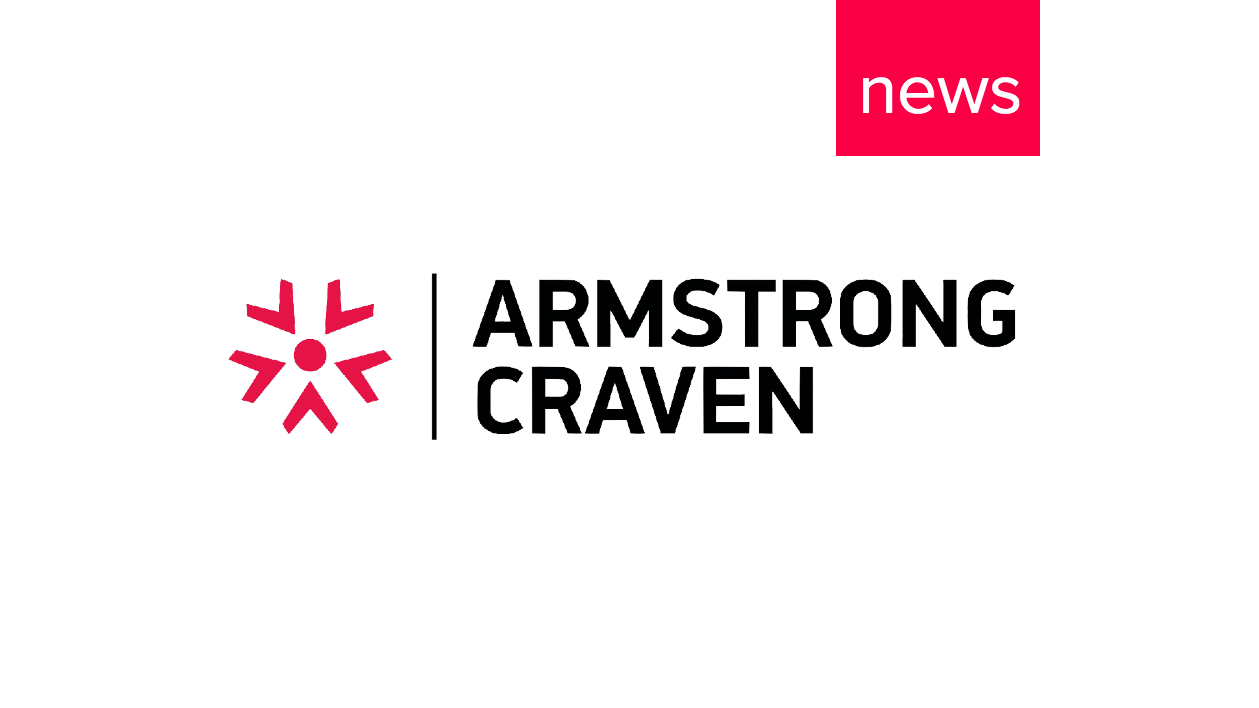How HR Strategy is Evolving in the Asian Talent Market
15 August, 2023Overview of the HRD Innovative HR Awards 2023
HRD Asia celebrated 15 innovative HR teams who demonstrated cutting-edge initiatives and approaches dedicated to creating positive employee experiences. The winners came from a range of industries, from finance to hospitality to medical.
These HR teams have been rewarded this prestigious award as they have developed methods that enable their workforces to become more productive and more beneficial, in areas including:
- Utilizing AI
- Wellness frameworks
- Charity partnerships
- E-learning programs and online onboarding
"An innovative team looks at its policies and brings them up to date for today's world. Modern HR teams are working differently, acting differently, and their priorities and expectations of their employees have changed. An innovative HR team will understand that DE&I initiatives are incredibly important. They then form strategies of how to implement these initiatives and how to influence them rather than just paying lip service"
Helen Coult, APAC Regional President
Listen to the podcast:
The Current Landscape of HR Strategy
In today's volatile business landscape, HR has evolved from a purely administrative function to a strategic business partner. From diversity, equity, and inclusion (DEI) initiatives to optimizing administrative processes, HR teams play a crucial role in driving organizational success.
Amidst the COVID-19 pandemic, the sudden shift to remote work highlighted the importance of HR as a business partner. HR professionals have been instrumental in developing strategies to retain talent in a work-from-home environment and now transitioning to a hybrid model.
HR's role as a strategic partner is vital in this ever-changing world. By staying ahead of evolving business landscapes and proactively addressing challenges, HR teams drive organizational success and ensure a thriving future.
How Do Innovative HR Teams Differ in the Asian Market?
Building trust is crucial, especially in implementing diversity, equity, and inclusion (DEI) policies. Asia's focus on diversity centers around ethnicity, and local leadership is becoming more important than relying solely on expat talent.
“While gender and ethnicity remain prominent topics in Europe, in Asia, the focus shifts more towards ethnicity and the emphasis on bringing in local leaders rather than relying on expatriate talent, particularly at the leadership level”
Helen Coult, APAC Regional President
Innovative HR teams need to prioritize training and development for local talent to foster leadership positions and create a culture of inclusivity. This transformation in HR enables businesses in Asia to thrive and employees to reach their full potential.
Is HR innovation more likely to thrive in long-established organizations?
"Does the fact that 47% of the recognized winners in the report have been in operation for over 30 years imply that success in HR requires a long-term approach, a company culture, and a deep understanding of what constitutes HR success?"
While culture holds immense importance, it is not a requirement that a company must have been in business for decades to embark on an innovative HR journey.
Launching with the right strategy is key. By observing and understanding what other companies have done and learning from their successes and failures, organizations can begin with a fresh perspective. They can explore how they would do things differently and avoid the need for major, time-consuming transformations that come with turning a large ship. Such changes often face resistance from the old guard, deeply ingrained in the traditional culture.
Implementing cultural change within an organization is undoubtedly a monumental task. However, starting afresh with a new business presents an opportunity to establish the desired culture and values from the beginning. This allows for greater flexibility and agility in adopting innovative HR practices.
What is best practice talent management?
Training is a vital aspect of talent management, essential for retaining and developing employees. As businesses evolve, so do the skills required for success.
Therefore, organizations must prioritize talent development to ensure a workforce that aligns with future roles and objectives. Training programs, including initiatives for local talent and leadership, play a crucial role in nurturing skills and fostering a culture of continuous improvement.
"As businesses are constantly evolving, so is the talent that is required and the skills and soft skills they possess. Therefore, talent development and talent management of the organization is incredibly important. We talk about innovative HR strategies, talent management is definitely one of these strategies."
Helen Coult, APAC Regional President
Innovative HR teams understand that effective management involves recognizing and accommodating individual differences. By grasping how employees learn and develop, HR professionals can align their strategies to unlock each person's full potential. Tailoring management approaches to meet individual needs helps reach business goals.
This tailored approach not only promotes personal growth but also drives business goals. By harnessing the power of customized management, organizations can create an environment where every individual can thrive and contribute to their utmost capabilities.
You should assess your team's suitability for achieving your business goals. As an example, Intelligent Board Room is a powerful technology that helps you evaluate your team's capabilities and identify gaps. It enables you to make informed decisions, align your team with your strategic objectives, and provide the necessary support for their development. With Intelligent Board Room, you can optimize your team's performance and drive your business forward effectively.
Key Considerations for Health and Wellness in the Asian Market
In the dynamic Asian market, the spotlight on health and wellness within HR strategies is essential. With the prevalence of long working hours, particularly in countries like Japan, organizations face the critical task of preventing burnout and prioritizing employee well-being.
"If you look at Japan, employees work notoriously long hours. Organizations are actively working to ensure safeguards are in place as well-documented stories have come to light over recent years where individuals have just worked themselves to the bone. That's a cultural shift within an organization, which is not easy to do. However, it is incredibly important. If people burn out, then they're not going to be any good for the organization. More importantly, it protects the health and well-being of employees."
Helen Coult, APAC Regional President
It is vital to create a workforce environment that fosters positive change and provides employee benefits that meet the needs of everyone and not a one-size-fits-all approach. For example, if providing a health and well-being package rather than just providing a gym membership, which is not suitable for everyone, also offer yoga and meditation classes or nutritional support. This will not only improve the health of the whole workforce but show your dedication to providing a more inclusive benefits scheme.
What role does tech play in a people focussed strategy?
The rapid growth of Artificial Intelligence (AI) technology in HR brings both excitement and uncertainty for the future. One promising example is GPT-3, which allows for the efficient creation of customized job descriptions by amalgamating various sources. By leveraging technology responsibly, we can shape a future where HR processes are enhanced and optimized.
"We are currently experiencing exponential growth in AI. Anything can happen within the next five to ten years. It's an exciting time right now. GPT-3, for example, you can pull five job descriptions from the internet from different sectors, amalgamate them, organize them, produce one, and then deliver it in five different languages. And you could do that in the space of 20 minutes. It is fantastic in terms of administrative time-saving."
Helen Coult, APAC Regional President
So rather than getting caught up in administrative tasks, innovative HR teams will leverage available technology to streamline basic functions. Tasks such as manual data entry and routine interactions can be delegated to chatbots or robotics, freeing up human resources for more people-oriented roles.
However, human interaction remains essential, particularly in areas like business partnering and talent intelligence. By continuously evaluating and incorporating relevant technologies, HR teams can become faster, stronger, and more effective in their work. By embracing technology as a tool, HR professionals can enhance their strategic impact and drive meaningful outcomes.
The use of various technologies has greatly enhanced our ability to deliver impactful work, both within organizations and in business partnering. For instance, technology has significantly streamlined the process when working with the board on strategic decisions like relocating functions. Previously, extensive research and analysis were required, resulting in lengthy reports. However, with the integration of technology, this process has become much faster and more efficient.
"I expect there still to be a big people focus. I think technology will be leveraged when it comes to business partnering from a talent intelligence perspective."
Helen Coult, APAC Regional President
Now, the focus lies in ensuring that humans are properly trained to effectively utilize AI. It's crucial to ask the right questions to obtain accurate and meaningful results. By combining human intelligence with technological capabilities, we can maximize the benefits of these tools and make informed decisions that drive organizational success.
At Armstrong Craven, we provide succession and talent planning services to help clients bring potential candidates into their processes. By taking these steps, organizations can build a strong talent pipeline and align their talent strategy with their business objectives, ensuring they have the right people in place to achieve their goals.
We have also partnered with Intelligent Boardroom, an enterprise platform that allows leaders to make people-focused decisions based on the complexity of future strategies the team needs to deliver. If you want to know more about our research-driven talent solutions, please get in touch.







